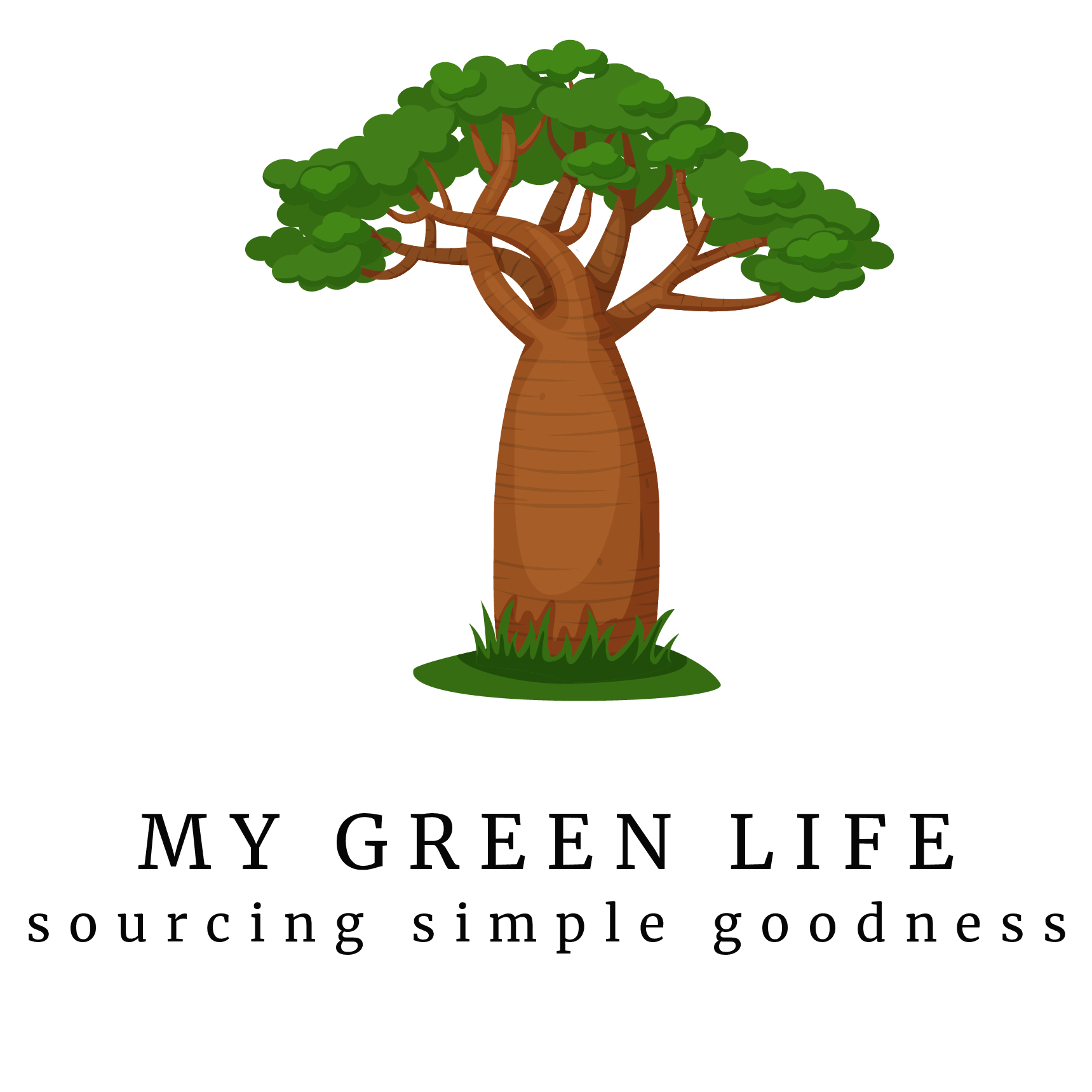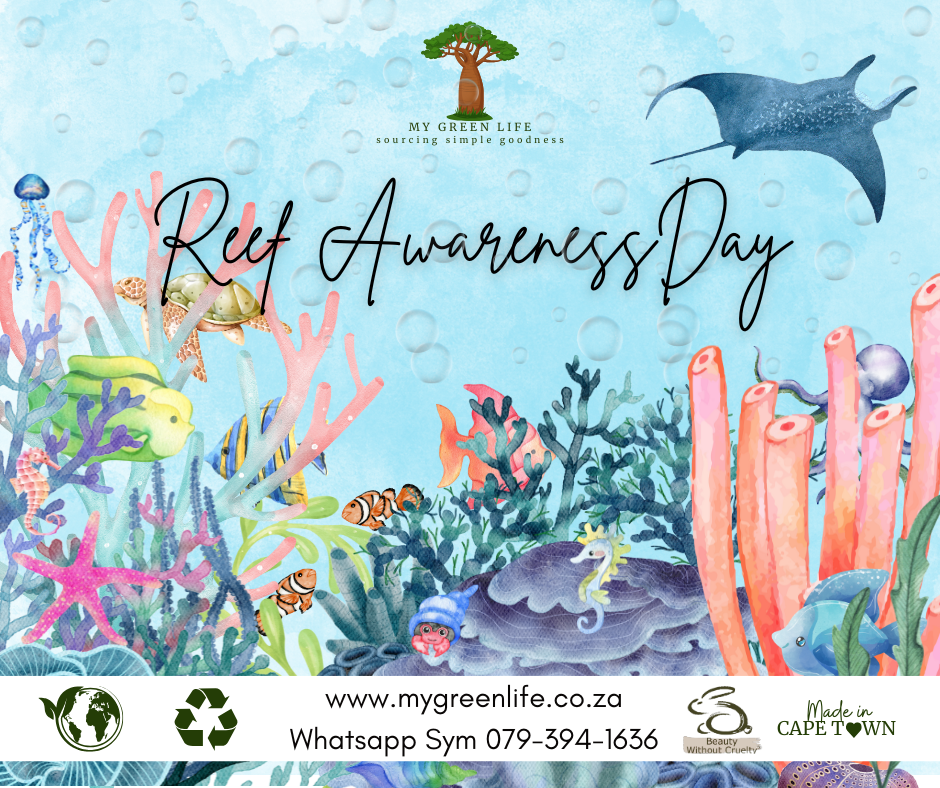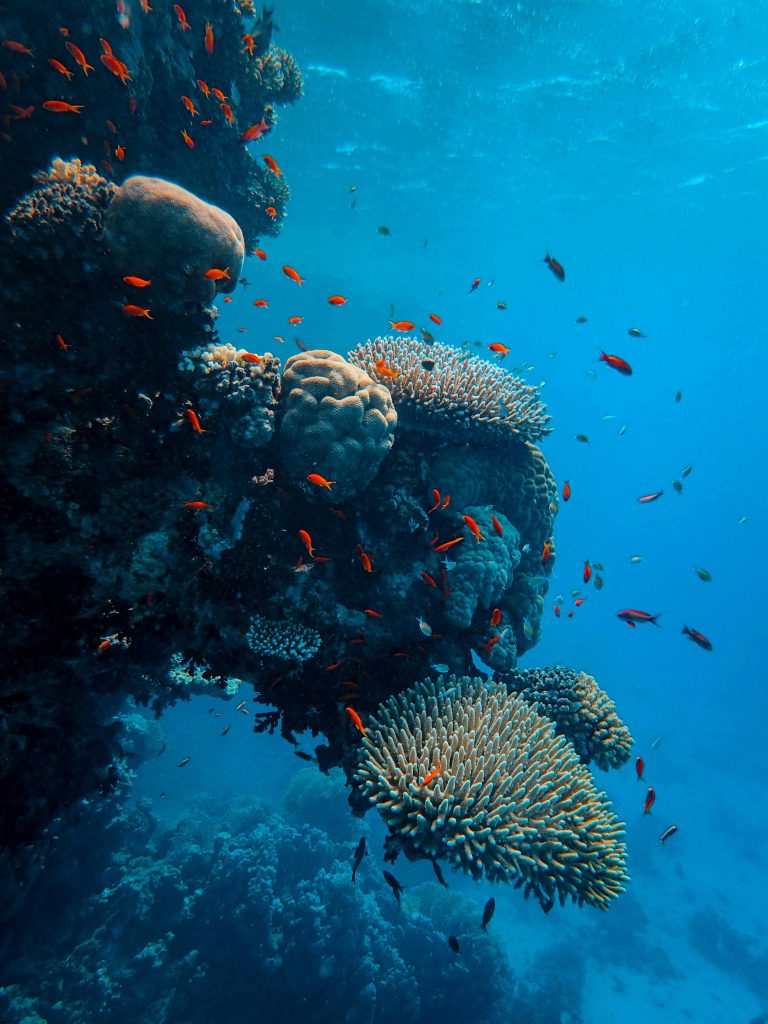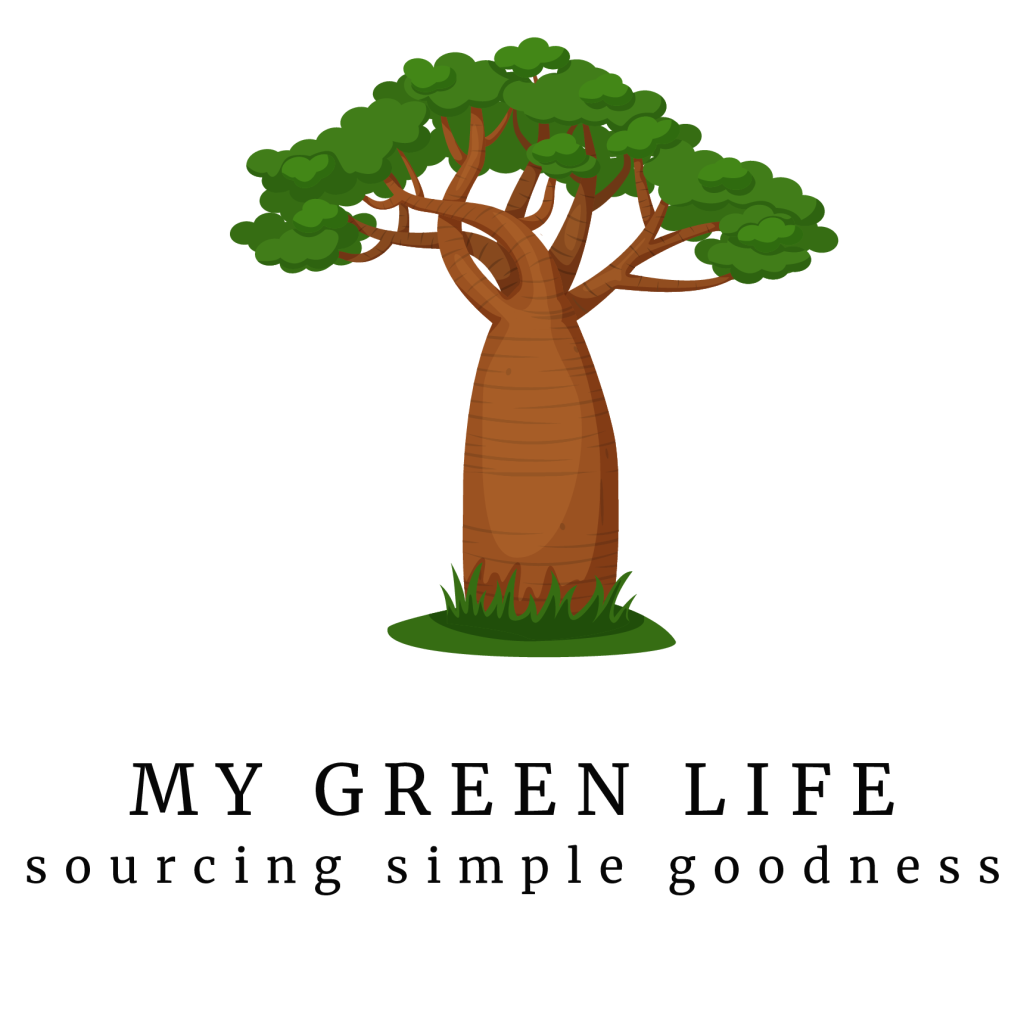1 JUNE: WORLD REEF AWARENESS
World Reef Day is a day to reflect on the delicate ecosystem of our ocean’s coral reefs and educate and engage with the community. It is important how we, in our everyday lives begin making sure that every single one of our products is reef safe – for the betterment of our oceans and coral […]
World Reef Day is a day to reflect on the delicate ecosystem of our ocean’s coral reefs and educate and engage with the community.
It is important how we, in our everyday lives begin making sure that every single one of our products is reef safe – for the betterment of our oceans and coral reefs through simple yet powerful steps to improve the health of marine ecosystems.
Coral reefs are the “rainforests of the sea” due to their incredible biodiversity.
Coral reefs are a crucial ecosystem that provides food, shelter, and breeding grounds for millions of animal species, protects coastlines from erosion, and creates jobs for local communities. Yet coral reefs are dying at an alarming rate all around the globe because of extreme threats such as pollution, global warming, and destructive fishing practices.
13% of the world’s population live in coastal regions near coral reefs and are dependent on reefs for their livelihoods, from fisheries and tourism. However, 75% of the reefs are already threatened with extinction which are caused by. environmental stresses such as climate change, overfishing, industrial debris, and plastic pollution. Without reefs, the oceans’ health, and our own, can be at risk.
Get involved by minimizing your plastic use, reducing environmental pollution by using eco-friendly products like MGL have on offer.
Given that 81% of all marine litter is plastic, it is crucial to reduce our plastic-based purchases, especially single-use plastics, and always recycle them. Plastic pollution is seriously damaging reefs, so opt for non-plastic alternatives and advocate for more eco-friendly business practices.
There are lots of beach cleanups during this event, so gather your friends and join the nearest one or do a solo cleanup. This experience can also make you more aware of the level of debris affecting our reefs and inspire you to make lasting changes.
By minimising pollution and reflecting on all the ways that your lifestyle affects and supports reef extinction, such as climate change or toxic waste. You can start making small and mindful steps to reduce your impact on reef damage.
Climate change, with shifts in ocean temperatures causing algae that live in corals to leave due to stress, in a process called bleaching. Without the algae the corals become more susceptible to decay and turn white since the algae also give them their vibrant colour. Ironically, healthy reefs could themselves be the solution to climate change, being carbon sinks and storing CO2 50 times more efficiently than forests.
Despite being mistaken for plants, corals are animals that consume a variety of plankton. In addition, corals in the larval life stage also swim, ride ocean currents and settle where they find a suitable place and attach themselves to the ocean floor to grow into a new coral colony.
World Reef Awareness Day is a reminder of the beauty and fragility of coral reefs and the collective responsibility we share in preserving them.








 EN
EN

